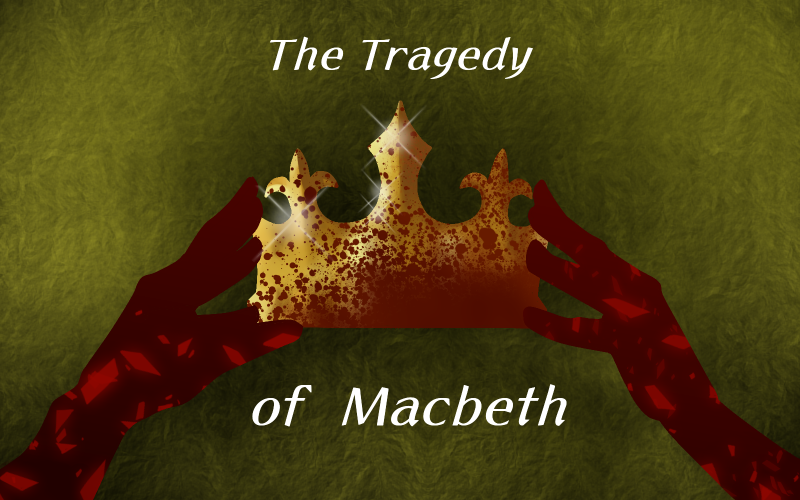“The Tragedy of Macbeth” is an intriguing watch, though hard to understand
January 26, 2022
It’s hard to be a student without reading at least one of Shakespeare’s multitude of works. From “Romeo and Juliet” to “Julius Caesar,” the British playwright has become the bane of many a student as they pore over lines of nearly incomprehensible text searching for some sign of symbolism to stick in their essays. On the other hand, Shakespeare’s revolutionary scripts have kept him popular among others well over 400 years after his death. He’s no stranger to having his work not only adapted onto the stage for modern audiences, but his plays were also some of the first to be recreated in films, many of which have been found to be hit or miss.
“The Tragedy of Macbeth” is the newest iteration of the classic play, written and directed by Joel Coen, and starring Denzel Washington, Frances McDormand, and Corey Hawkins. The faithful adaptation tells the story of the titular Scottish lord who becomes convinced by three witches that he will one day become king. However, Macbeth’s lack of forethought leads to a turbulent rise to power. It’s a strange departure for Coen, as this is the first film he’s made completely independently and without the help of his brother Ethan, with whom he’s written and directed over a dozen films.
The film lives in a strange purgatory between stage and screen, and in a strange way it isn’t really either. Every scene was filmed on a soundstage, including those that take place outdoors, making it feel as though you’re watching a stage production play out in front of you. It’s still filmed like a movie, but the sets involve some suspension of disbelief. This is even furthered by the fact that it was filmed in black-and-white, and in an aspect ratio of 1.19:1, meaning in a more square-shaped frame than the majority of modern movies. The combination of all of these elements makes it feel more like one is watching a film from the olden days of Hollywood.
The cinematography is highlighted by the film’s use of black and white. In many scenes, a contrast between the dark and the light is present, highlighting the character’s internal conflicts and feelings. It’s also a double-edged sword, as some scenes (especially those taking place outdoors) wind up feeling flat and two-dimensional, when they really shouldn’t.
Despite having a cast led by two seasoned actors, the film doesn’t have much to boast about in the way of acting. Its Shakespearean language gives some of the dialogue a halting quality, especially when it comes to those actors with American accents. The variety of accents present in the film doesn’t impede the quality of it, however, and it becomes pretty easy to ignore after a while. The performances as a whole are merely sufficient, but nothing more. Frances McDormand, winner of four academy awards, delivers the weakest out of the film as a more subdued Lady Macbeth than seen in the original play. Wife of writer and director Joel Coen, McDormand just doesn’t seem like the right person to play such a boldly conniving character. Denzel Washington and Harry Melling (known best for his roles in the Harry Potter franchise and “The Queen’s Gambit,”) delivered the most compelling performances in their respective roles.
By far the biggest issue with “The Tragedy of Macbeth” is that it is an almost completely direct adaptation of its source material. Making such close adaptations is a concept Joel Coen is no stranger to, as his 2007 crime thriller “No Country for Old Men” is also a nearly identical adaptation of Cormac McCarthy’s 2005 novel of the same name. Many may find that viewing this film is much more difficult when one has to decipher what each character is saying. Luckily, the film is available on Apple TV, so when watching at home, subtitles are always an option (and certainly a great help). While the plot of the film isn’t lost because of this trait, a lot of the nuances in the dialogue are. It’s also somewhat evident when a line is included that wasn’t in the original play, as sometimes a line will seem too modern and out of place with the rest.
Because of the dialogue, a lot of enjoyment is taken out of the film. Without conversations most can understand, the film has less room to flourish and relies on the rest of its aspects to make up for it, though insufficient in many places. The film definitely appeals the most to fans of Shakespeare and his works, who would most likely be more familiar with the old language. However, “The Tragedy of Macbeth” doesn’t have much else going for it other than an interesting look and story.



